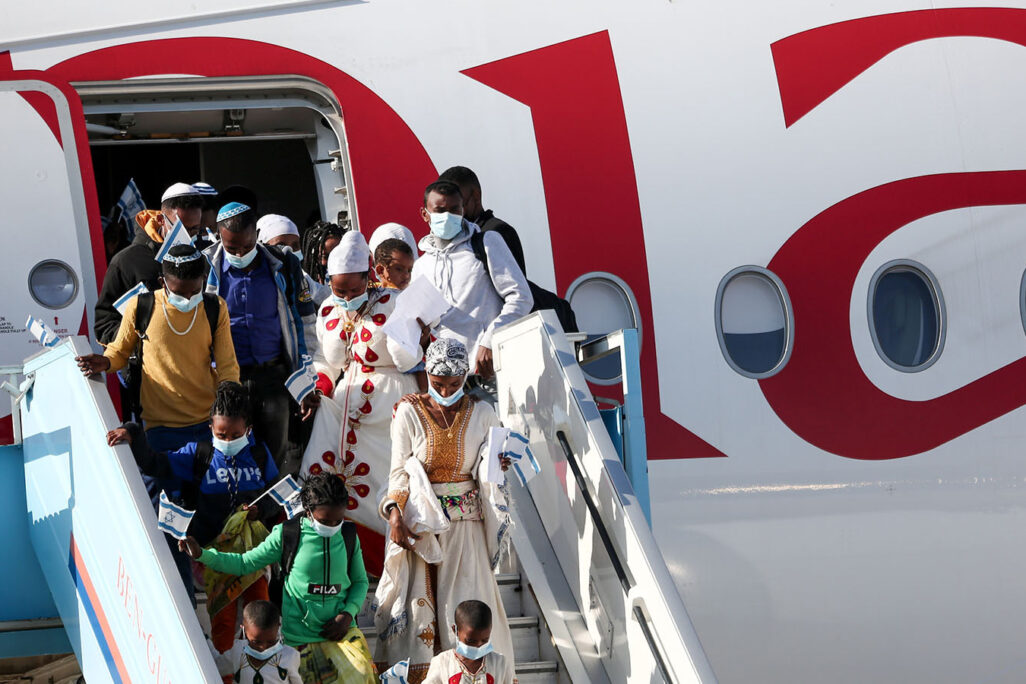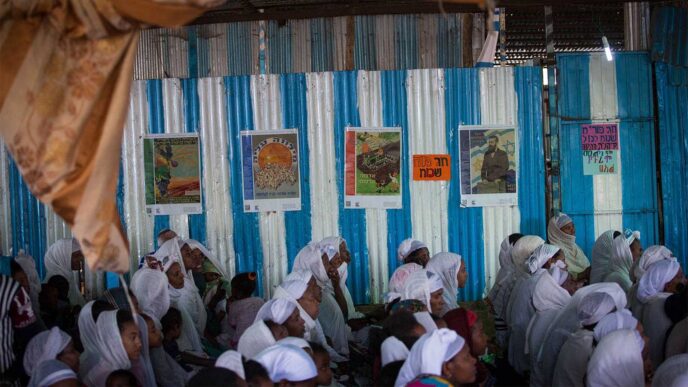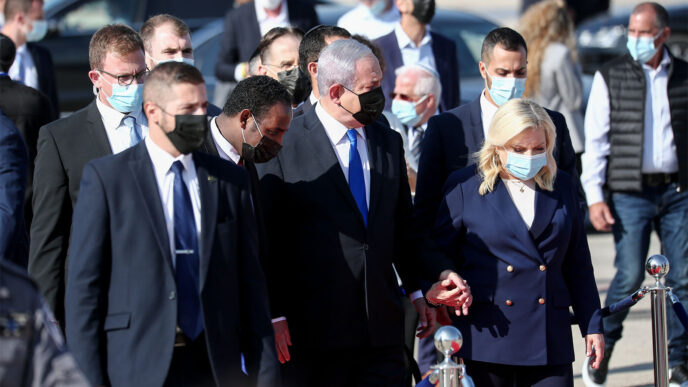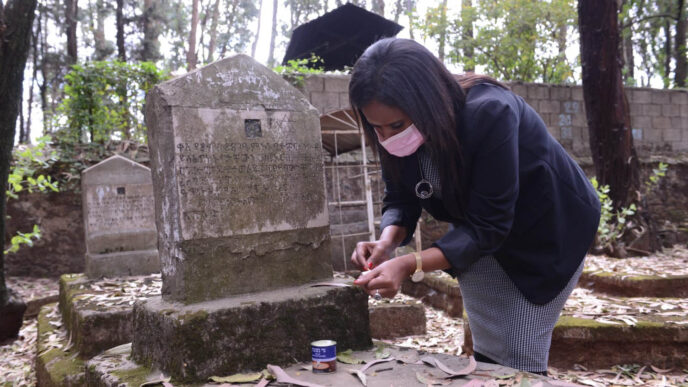
400 olim [immigrants] from Ethiopia landed at Ben Gurion Airport last week. The government has branded their aliyah with the name Tzur Israel and aims to allow 2,000 Ethiopian Jews currently waiting in camps in the Ethiopian cities Addis Ababa and Gondar to make aliyah to Israel. The original announcement stated that 500 olim would arrive, later attributing the reduction to difficulties at the airport in Addis Ababa.
Due to coronavirus-mandated quarantine, Israeli families of the new immigrants will have to wait until after the isolation period to see their loved ones. The olim will quarantine in Beit She'an in accordance with Israeli coronavirus laws. Some family members were left disappointed by inadequate government communication of the restrictions.

Tadasa Wanda, 23, from Jaffa, who immigrated to Israel from Gondar with his parents and some of his brothers eight years ago, waited at the airport on Thursday morning, expecting to see his older sister and cousin when they landed. “We're really excited,” he said. “I don’t understand why they didn’t let us see her. No one told us not to come.”
The Ministry of Immigration and Absorption commented in response to complaints: “We would have liked it to be different, but the coronavirus means we must follow certain rules. In accordance with the guidelines of the Ministry of Health, the immigrants went into quarantine as soon as they landed.”
There are estimated to be about 7,800 Ethiopian Jews still waiting to make aliyah, mostly concentrated in Addis Ababa and Gondar. The community has encountered difficulty making aliyah due to disputes over the veracity of their Jewish roots and their eligibility to certain rights under the right of return. Over the years, voices from within the rabbinate, the Israeli government, and even the originally-established Ethiopian Jewish community in Israel, have raised concerns that the remaining Ethiopian Jews, most of whom converted to Christianity by force during the 18th and 19th centuries, are not “real Jews” but rather Christians seeking to escape poverty in Ethiopia.
It should be noted that similar concerns were raised regarding Jews from the former Soviet Union, but they were mostly allowed to make aliyah.
Over the years, thousands of community members have left their rural homes and livelihoods for crowded transit camps, while their immigration paperwork stalled in the face of the controversy. The government decided in 1997 to allow 4,000 members of the community to make aliyah after which, in 1998, they announced that the Ethiopian aliyah was “completed.”
Meanwhile in reality community members continued to arrive at the transit camps seeking to make aliyah. Many of those still waiting have family members already in Israel. In 2015 the government again promised to bring all of those currently waiting in camps to Israel, but that promise has been largely neglected until now.

Community activists in Israel maintain that members of the community were forced to convert and that their ancestry is unequivocally Jewish. They further maintain that the community’s rightful place is with the Jewish people in Israel. Their right to make aliyah has become a central demand of community activists.
“The great joy for the reunited families is mixed with sadness for those left behind," said the leaders of the Headquarters of the Struggle for the Aliyah of Ethiopian Jews, a protest movement aimed at pressuring the government to assist Ethiopian Jews in making aliyah.”We must not forget our brothers who remain in Ethiopia. The Israeli government must act as soon as possible to implement the decision it made in 2015. If not, we will protest,” they said.
Dr. Avraham Ngusa, a former Likud MK who accompanied the olim from Ethiopia, called on the government to act quickly to bring the remaining Jews from Ethiopia. “This is an emergency,” he said, referring to the recent outbreak of war in Ethiopia, which has the potential to endanger the lives of Jews waiting in the camps. “The State of Israel has been home for every Jew, especially in an emergency. I call on the government to stop talking and bring everyone,” he said.
Though the Israeli government resolved in October 2019 to execute the neglected 2015 decision that all Ethiopian Jews waiting to make aliyah through the end of 2020 would be allowed to immigrate, the arrival last week marked the first aliyah of its size since 2013.
The arrival attracted widespread political attention.

At a ceremony held at Ben Gurion Airport to welcome the new immigrants, Prime Minister Benjamin Netanyahu said, “I can’t remember the last time I was so moved like I am now, by this pure expression of our Zionist values.” He also promised to promote the return of Avra Mengistu, an Ethiopian Israeli man who has been in captivity in Gaza since 2014 and on whose behalf Ethiopian-Israeli activists have protested and accused the government of neglect.
Deputy Prime Minister and Defense Minister Benny Gantz recounted the story of thousands of Ethiopian olim who made their way to Israel during the 1980s and 1990s. “We must learn our lesson and make sure that the absorption process is better than before,” he said, alluding to issues Ethiopian Jews have faced upon integration into Israeli society, including racial discrimination and police brutality.

Pnina Tamano-Shata, the Minister of Immigration and Absorption and the first Ethiopian-Israeli in the role, traveled to Ethiopia and returned to Israel on the aliyah flight. She acknowledged the complexity of the plight of community members remaining in transit camps. “It is difficult to describe in words the pain that exists alongside the hope of the people there, who saw me as a representative of the Israeli government,” she said. “I promised them that we would not turn our backs on them. This is just the beginning.”






